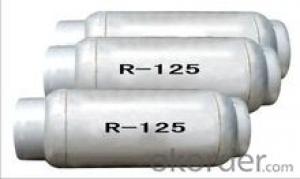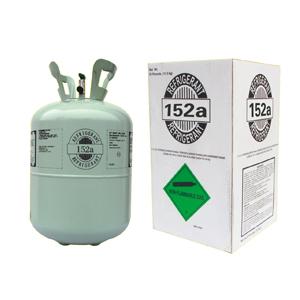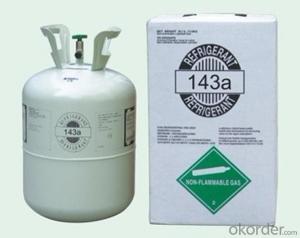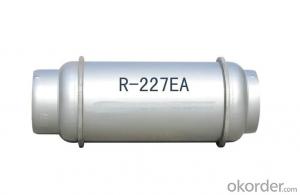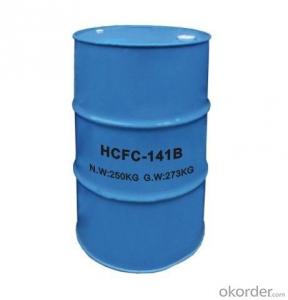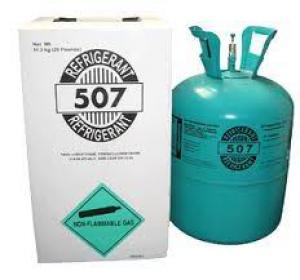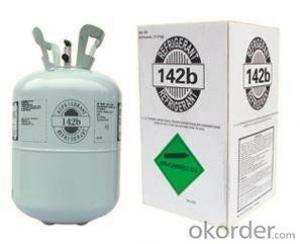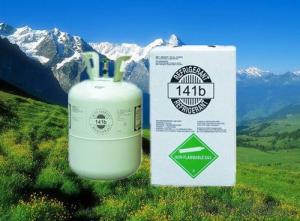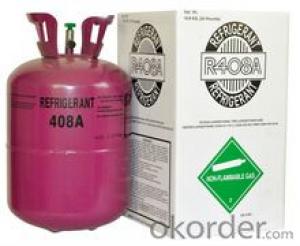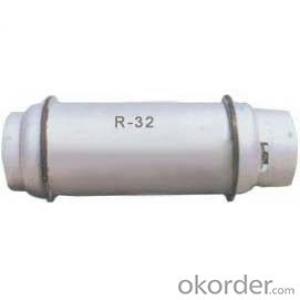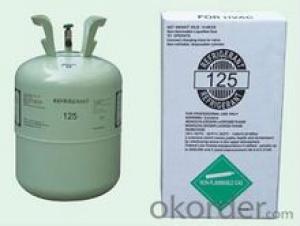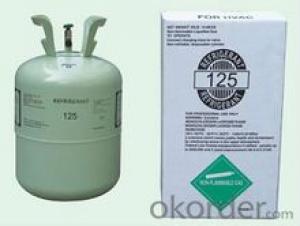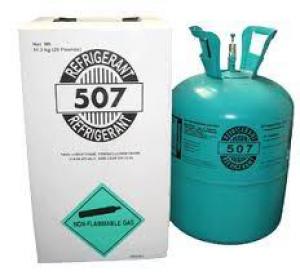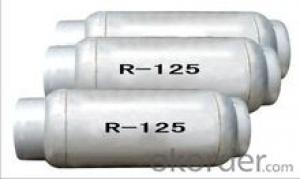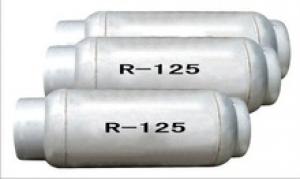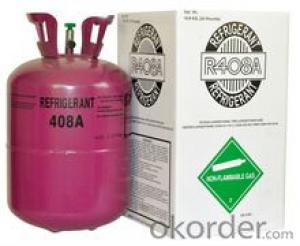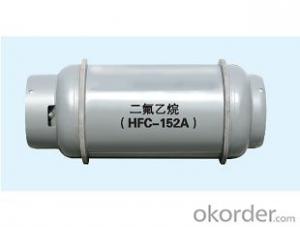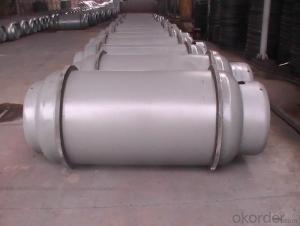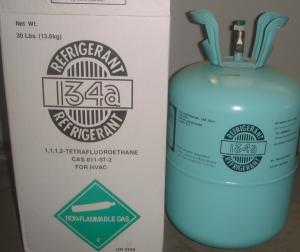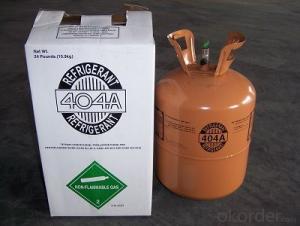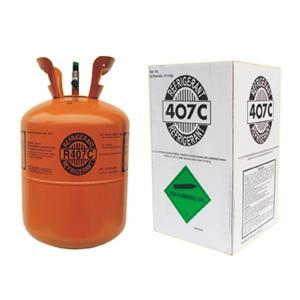R125 Gas in Refillable Cyl
- Loading Port:
- Shanghai
- Payment Terms:
- TT OR LC
- Min Order Qty:
- -
- Supply Capability:
- 1000MT m.t./month
OKorder Service Pledge
OKorder Financial Service
You Might Also Like
Specifications
1.OEM is accepted
2.Delivery time:15 days
3.Good service after sale
4.competitive price in this line
Refrigerant, it is an important component of mixed working substance, and can replace R502 and R22. Used as fire-extinguishing agent, can replace Halon1211 and Halon1301.
Property of chloride
Formula: CHF2CF3
Molecular weight: 120.0
B.P.,°C: -48.3
Critical temperature,°C: 66.05
Critical pressure, MPa: 3.59
Critical density, g/cm3: 0.571
Liquid density, 25°C,g/cm3: 1.19
Vaporization heat at B.P., KJ/Kg: 165
ODP(CFC-11=1): 0
QWP(CO2=1): 3500
Quality standard
Appearance: Colorless, no turbid
Odor: Odorless
Purity, ≥%: 99.8
Water, ≤%: 0.001
Acidity, ≤%: 0.0001
Residue on evaporation, ≤%: 0.001
- Q: What are the gaseous states of the oxygen-containing derivatives of the hydrocarbons under the standard conditions?
- Halide only fluoride in normal temperature and pressure may be gaseous;
- Q: Compare the difference between London smoke and Los Angeles photochemical smog
- Los Angeles photochemical smog nitrogen content and hydrocarbons and derivatives more, mainly close to the car exhaust. Foggy London situation related to coal, soot solid particles and sulfur oxide more. Foggy London is more bleak, and Los Angeles is more toxic.
- Q: What is a derivative of a hydrocarbon? What is an aromatic hydrocarbon derivative?
- Hydrocarbon derivatives include derivatives of linear and aromatic hydrocarbons such as chloroethane bromopropane bromobenzene
- Q: What is the relationship between hydrocarbon and hydrocarbon derivatives?
- Hydrocarbons, which are composed of two elements, carbon and hydrogen, are called hydrocarbons and hydrocarbons. It reacts with chlorine, bromine vapor, oxygen, etc. to produce hydrocarbons.
- Q: What are the oxygen consumption of the oxygen-containing derivatives of the mass hydrocarbons?
- For this comparison, you can see the experimental formula of this material, a C corresponds to an oxygen, 4 H corresponds to an oxygen, the experimental consumption of oxygen up, then under the same quality conditions, the greater the oxygen consumption of this material
- Q: Are there two derivatives of equivalent hydrogen?
- You give the scope is too broad, at least to set in what kind of functional group range ah.
- Q: Is the oxygen derivative of the hydrocarbon a non-methane total hydrocarbon?
- Hydrocarbon derivatives of hydrocarbons do not belong to non-methane total hydrocarbons
- Q: What cells are composed of compounds
- Protein and water
- Q: Why not ah?
- A series of compounds in which a hydrogen atom in a hydrocarbon molecule is replaced by another atom or radical is called a derivative of a hydrocarbon
- Q: NH4HCO3 and so have C atoms ah, why still inorganic
- Not all carbon compounds are organic compounds, CO, CO2, carbonic acid, carbonates (including salt and acid salts), metal carbides, cyanides, thiocyanates are inorganic compounds.
Send your message to us
R125 Gas in Refillable Cyl
- Loading Port:
- Shanghai
- Payment Terms:
- TT OR LC
- Min Order Qty:
- -
- Supply Capability:
- 1000MT m.t./month
OKorder Service Pledge
OKorder Financial Service
Similar products
Hot products
Hot Searches
Related keywords
